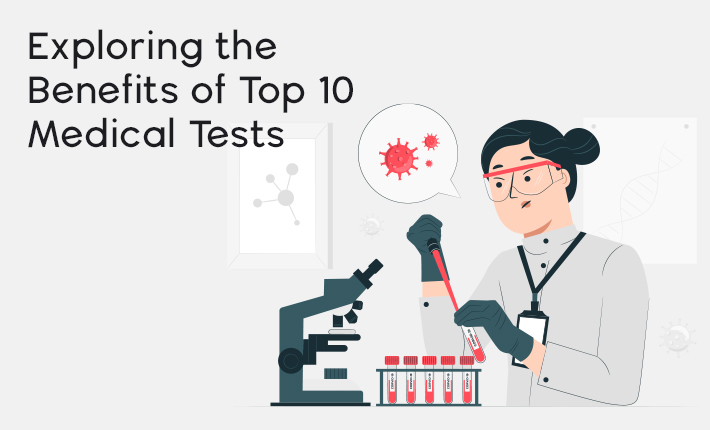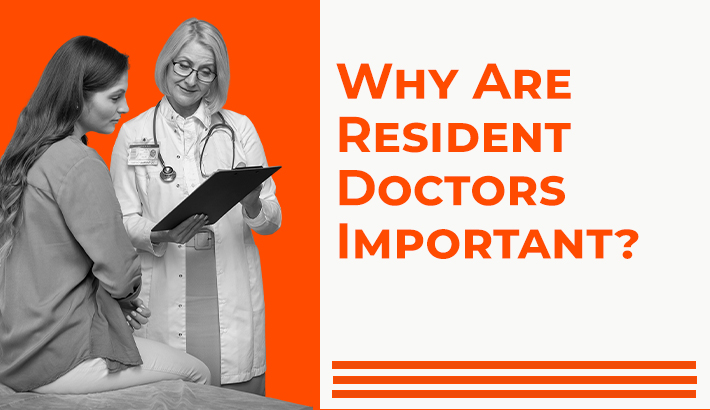Understanding the Healthcare Landscape of India
India boasts a robust healthcare system with highly skilled doctors at the forefront. The country is known for its talented medical professionals who provide quality care to millions of people.
Understanding the healthcare landscape in India, along with the importance of medical professionals and tests, can empower individuals to make informed decisions about their health and well-being.
Regular medical tests play a crucial role in maintaining our health and well-being. They allow healthcare professionals to assess our overall health, detect potential diseases or conditions, and provide early interventions when necessary.
In this blog post, we will delve into the benefits of the top 10 medical tests that everyone should consider. These tests cover a range of areas, from cardiovascular health to cancer screening, and their importance cannot be overstated.
By understanding the advantages they offer, we can make informed decisions about our healthcare and take proactive steps toward a healthier future.
Resident Doctors of India: A Robust Healthcare System
Resident doctors of India are an integral part of the healthcare ecosystem, serving diverse communities across the country. They undergo extensive education and training to specialize in various fields, such as general medicine, pediatrics, cardiology, orthopedics, and more.
With a strong emphasis on medical education, India produces a significant number of doctors each year, contributing to the healthcare workforce not only within the country but also globally.
Indian doctors are respected for their clinical expertise, diagnostic skills, and compassionate patient care. They work in a variety of settings, including government hospitals, private clinics, research institutions, and international healthcare organizations.
The dedication and commitment of Indian doctors have played a significant role in addressing public health challenges and improving medical outcomes in the country.
What Are Some of the Medical Jobs in India?
The healthcare industry in India offers a wide range of employment opportunities for aspiring medical professionals. Some of the prominent medical jobs in India include:
General Practitioner:
General practitioners are primary care doctors who provide comprehensive medical care, diagnose common illnesses, and refer patients to specialists when needed. They play a crucial role in the early detection and management of various health conditions.
Specialists:
India has a vast pool of specialists across different medical fields, such as cardiologists, neurologists, gynecologists, orthopedic surgeons, and more. Specialists focus on diagnosing and treating specific diseases or conditions, often working in hospitals or specialized clinics.
Surgeons:
Surgeons perform surgical procedures to treat diseases, injuries, or deformities. They include general surgeons, cardiac surgeons, neurosurgeons, and other surgical specialists.
Medical Researchers:
Medical researchers contribute to advancing healthcare by conducting research studies, clinical trials, and exploring innovative treatment options. They work in research institutions, pharmaceutical companies, and academic settings.
Medical Consultants:
Medical consultants offer specialized expertise and guidance to healthcare organizations, insurance companies, or government bodies. They provide insights on policy development, quality assurance, and healthcare management.
Top 10 Medical Tests
Complete Blood Count
One of the most commonly performed medical tests is the Complete Blood Count (CBC). This test provides valuable insights into our overall health by measuring various components of our blood, such as red blood cells, white blood cells, and platelets.
A CBC can help detect conditions like anemia, infections, and blood disorders. By identifying these issues early on, appropriate treatment can be initiated, preventing complications and promoting better health outcomes.
Lipid Profile
A Lipid Profile is a blood test that measures cholesterol and triglyceride levels. High levels of these substances can contribute to cardiovascular diseases, including heart attacks and strokes. Regular lipid profile tests enable early detection of abnormal lipid levels, allowing for timely interventions such as lifestyle modifications and medications.
By monitoring and managing our lipid levels, we can significantly reduce the risk of developing heart-related problems and maintain a healthy heart.
Blood Pressure Measurement
Measuring blood pressure is a simple yet crucial medical test that helps identify hypertension or high blood pressure. Elevated blood pressure can lead to severe health complications, such as heart disease, stroke, and kidney problems.
By regularly monitoring our blood pressure and taking appropriate measures, such as lifestyle changes and medications, we can effectively manage hypertension and minimize its adverse effects.
Pap Smear
Pap smear, also known as a Pap test, is a screening tool primarily used for cervical cancer detection in women. By collecting cells from the cervix, this test can identify any abnormal changes that may lead to cancer development. Early detection through regular Pap smears enables early intervention, significantly improving the chances of successful treatment.
Women who undergo regular Pap smears can detect cervical abnormalities in their early stages, preventing the progression to more advanced and potentially life-threatening conditions.
Prostate-Specific Antigen (PSA) Test
The Prostate-Specific Antigen (PSA) test is a blood test primarily used for prostate cancer screening in men. By measuring the levels of PSA in the blood, this test can help identify potential prostate abnormalities. Early detection through PSA testing enables timely treatment, improving the chances of successful outcomes.
However, it's important to note that a high PSA level does not necessarily indicate the presence of cancer, and further diagnostic tests are often required for a definitive diagnosis.
Bone Density Test
A Bone Density Test, also known as a Dual-Energy
X-ray Absorptiometry (DEXA) scan, measures the density of our bones. This test is primarily used to assess the risk of osteoporosis, a condition characterized by weak and brittle bones.
By detecting decreased bone density early on, individuals can take proactive steps to prevent fractures and maintain bone health through lifestyle modifications, supplementation, and medications if necessary.
Mammogram
Mammograms are X-ray examinations of the breasts and are crucial for breast cancer screening in women. Regular mammograms can help detect breast abnormalities, including tumors, at an early stage when treatment is most effective.
Early detection through mammography can significantly increase the chances of successful treatment and improve long-term outcomes. Women are recommended to undergo routine mammograms starting at a certain age or as advised by their healthcare provider.
Colonoscopy:
Colonoscopy is a procedure that allows healthcare professionals to examine the colon and rectum for abnormalities, such as polyps or signs of colorectal cancer. Through the removal of polyps during the procedure, colonoscopy can prevent the development of cancer or detect it in its early stages, leading to better treatment outcomes.
Regular colonoscopies are especially important for individuals with a family history of colorectal cancer or other risk factors.
Glucose Testing
Glucose testing, including fasting blood sugar or oral glucose tolerance tests, helps evaluate blood sugar levels and screen for diabetes or prediabetes. Early detection and management of diabetes are crucial for preventing complications, such as heart disease, kidney damage, and nerve problems.
By monitoring glucose levels and making necessary lifestyle changes, individuals can effectively manage their blood sugar levels and reduce the risk of long-term complications.
Eye Examination
Regular eye examinations play a vital role in maintaining good vision and overall eye health. Eye tests can detect refractive errors, such as nearsightedness or farsightedness, as well as eye conditions like glaucoma and cataracts.
Timely identification of these issues allows for appropriate corrective measures, such as glasses or surgery, and prevents further deterioration of vision. Additionally, eye examinations can sometimes reveal underlying health conditions, including diabetes and hypertension, that may otherwise go unnoticed.
In Conclusion
Regular medical tests offer numerous benefits by providing crucial insights into our health and enabling early detection and intervention. The top 10 medical tests discussed in this blog post cover various aspects of our health, ranging from cardiovascular health to cancer screening and overall well-being.
By understanding the advantages of these tests and incorporating them into our healthcare routine, we can take proactive steps towards maintaining optimal health, preventing complications, and enjoying a higher quality of life.
Remember, regular consultations with healthcare professionals are essential for personalized recommendations based on individual health conditions and risk factors.




